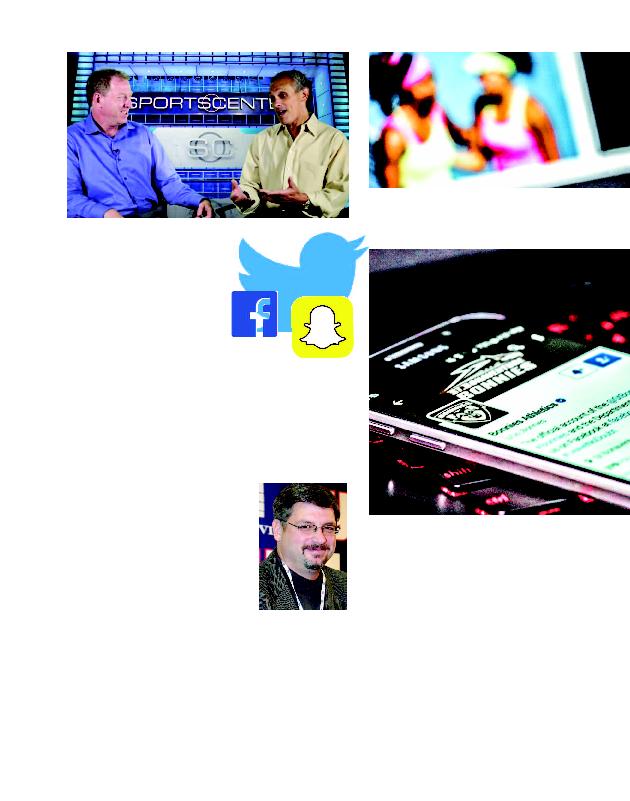
readers wait for the meatier story online -- and then
posted the column link to his 19,000-plus followers on
Twitter and 3,278 Facebook friends. More than
500,000 readers of the Post's print edition eventually
saw it as well, but long after the column had spiraled
through cyberspace.
a pay phone to a sports department intern, the explo-
sion of digital and social media has forever altered the
landscape of sports journalism.
nizes the need for journalists to embrace social media
in some fashion -- Twitter, Facebook, blogging, pod-
casts, Snapchat -- to remain relevant.
caro returned to Chicago. The New York Post sports colum-
nist posted up at a familiar bar for a burger and a beer, to
"hang with the locals while they lived and died" by the
tional League Championship Series, he sat there under the goat head on
the wall -- not the original Murphy denied en-
trance to the 1945 World Series, but an effigy to
the farm animal credited with the Cubs' losing
curse.
like the Cubs with such a tortured history -- can
add a flavor to game coverage that a utility in-
fielder with a game-winning pinch hit could
never do.
wasn't going to let social media dictate how he
told that story by spewing viral sound bites every
other batter.
two fanbases waiting to end World Series droughts totaling 176 years
would be forced to wait, biting fingernails, on the last possible day of the
season -- if only for 17 minutes -- for the bane of the fans' existence: the
rain delay.
the Chicago Tribune and the Poynter Institute.